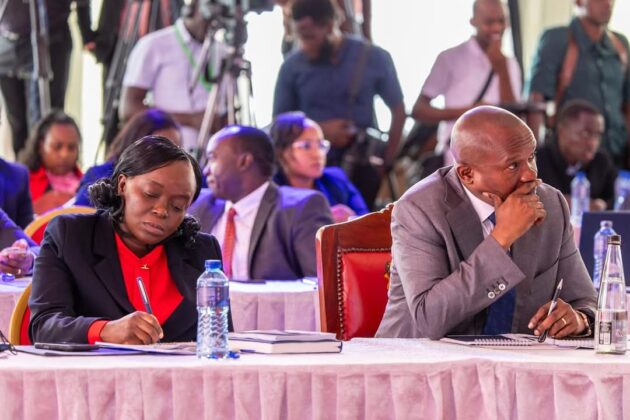
Govt needs Sh24.9bn to replace funding after foreign aid freeze » Capital News
NAIROBI,Kenya,Feb 17– The government has revealed that it requires an immediate Sh 24.9 billion to replace funding from the United States government following a freeze in foreign aid by President DonaldTrump’s administration.
The revelation was made Monday during a consultative forum on the implementation of Universal Health Coverage (UHC) chaired by Deputy President Kithure Kindiki.
The forum highlighted the immediate financial gaps in healthcare delivery, including the need for urgent disbursements to sustain essential health services.
Ministry of Health Cabinet Secretary Deborah Barasa disclosed that the Ministry is seeking an immediate Sh 2 billion disbursement, in addition to Sh 2.5 billion for GAVI vaccines, to mitigate disruptions caused by the U.S. aid freeze.
Additionally, the transition funding required for key health data systems, such as the Kenya Electronic Medical Records (Kenya EMR) and the Kenya Health Information System (KHIS), stands at KES 139 million.
The Health CS further reveled that 41,547 healthcare workers have been affected by changes in the President’s Emergency Plan for AIDS Relief (PEPFAR) funding.
She noted that the government plans to retain at least 11,059 frontline health workers at a cost of Sh 5.84 billion.
Beyond the Sh 24.9 billion needed to replace US funding, the Health Ministry is also seeking an additional Sh 2.8 billion for blood transfusion services as World Bank funding ends in March 2025 and Sh 11.6 billion for immunization and vaccines, with GAVI support at risk.
Additionally Sh1.74 billion is needed to sustain family planning programs, Sh 4.96 billion for nutrition, with Sh 2.88 billion at risk due to US government funding cuts.
On January 20, following his swearing in, President Donald Trump signed an executive order halting all U.S. foreign development aid for 90 days to allow the “assessment of programmatic efficiencies and consistency with United States foreign policy.”
Reacting to the move Kenya’s Foreign Affairs Principal Secretary Korir Sing’Oei warned that the move could have far-reaching consequences for African nations.
He noted that the suspension of US aid would significantly hinder the ability of many African countries to achieve health targets and other development goals, potentially derailing progress towards the United Nations’ Sustainable Development Goals (SDGs).
“The announced pause to US Foreign Assistance will unfortunately impair the ability of many African countries to meet health and other targets and undermine the realization of SDGs,” he said.